|
This isn’t the usual kind of blog I write for my website, however I feel that it is one which needs to be written, talked about and shared. The subject matter is a difficult one, cloaked in shame, silence and stigma - this will never change unless we are brave enough to open up the conversation and share how we are feeling and the impact this silence causes on the taboo subjects of depression and suicide.
A few months ago I had the absolute pleasure and privilege to read an advanced copy of The Boy Between, written jointly by family friends Joshiah Hartley and his mum Amanda Prowse. Amanda is a well known and respected author, who isn’t afraid to write about difficult subjects, (abuse, loss of a baby, affairs, alcoholism, eating disorders to name but a few), I have no reason to doubt that writing this book with Josh was on a whole new level of difficult. This collaboration is written by both Josh and Amanda, alternating between one another per chapter both documenting their consecutive thoughts, feelings and emotions during this period of time. The amount of courage it has taken by both of them, to put pen to paper and share their journey cannot and should not be underestimated. The opening chapter, written by Josh hits you full on. This young man who had recently headed off to university and should be living “his best life” is sat on the edge of his bed in a darkened room, holding a handful of pills bought from the World Wide Web, contemplating taking his own life. His world he described as “the colour turned down until only grayscale remained.” Call it luck, fate whatever you choose... Josh didn’t take those pills and thankfully has found enough courage and strength to share his inner most thoughts and feelings, what it was (and still is) like in his world. Amanda also bravely shares her raw emotions and lays them bare; her fears, guilt, sense of failure as a mum and protector, her overwhelming need to make things okay and Josh to be ‘better’. Her anger that there is very little help, support or advice available, that a postcode lottery can decide who gets help and who doesn’t. This has driven them both to tell their stories and open up this much needed conversation. From my professional view point - I work with young people and adults who live with depression, self harm and daily thoughts of suicide. I support, listen, and ‘hold’ them in a safe space. A space where they can just be, they can choose to explore what is or has happened for them (if anything, as often there are no reasons) and what they want or need from me, from themselves or from the world. That being said, I am eternally grateful to Josh for giving me even more of an insight into life with depression and suicidal ideation and reassuring me that I am able to empower my clients to see there is ‘a bend in the road’. To provide them with hope and a reason to live today. I am not there to ‘rescue’ them, but to work with them ‘rescuing’ themselves. From a personal point of view, I could identify with both authors. My heart broke for Mandy, Josh and their beautiful family - each family member impacted in their own unique way. I am also a mum, I have 2 daughters the same ages as Josh and his brother. I recognised and related to the sense of trying to do the best we can, that fear of treading on eggshells and not wanting to rock the boat or engage in difficult conversations, just in case we say or do something which will upset them and make things worse! Yet trying to balance this with nurturing, guiding supporting and advising without being dictatorial; empowering them to be who they want to be. Hindsight is very much 20/20 vision, if only... This book, I believe can help to open up those difficult conversations. Whether written or spoken, those conversations are being given the permission to be explored. You cannot make anyone take their own life. You can however give them a reason to live, without guilt or blame, just understanding and enabling them to hear they are loved, wanted and needed. That they do not have to face the daily struggles alone, and that those individuals who are supporting someone who lives and battles with depression and thoughts of suicide, please know you are not alone either. There is support available for you too. As Josh says, “Take a breath. Take a moment... things can and often do get better. Don’t delete yourself.” It’s hard, but reach out, talk, share your journey, laugh, cry, rant. Together, even after the darkest of nights you will see that the sun rises everyday, this can be the hardest struggle you’ve faced, but you CAN do it. I am here to listen and support you or a loved one struggling. If I’m not the right person for you, that’s okay, there are other organisations which can offer support, they include: Samaritans 116 123 Text SHOUT to 85258 you will be listened to, heard and supported Campaign Against Living Miserably (CALM) for men 0800 58 58 58 Papyrus - under 35’s 0800 068 41 41 or text 07860 039967 Childline 0800 1111 5 star review on Amazon... This collaboration is written by both Josh and Amanda, alternating between one another per chapter both documenting their consecutive thoughts, feelings and emotions during this period of time. The amount of courage it has taken by both of them, to put pen to paper and share their journey cannot and should not be underestimated. The opening chapter, written by Josh hits you full on. This young man who had recently headed off to university and should be living “his best life” is sat on the edge of his bed in a darkened room, holding a handful of pills bought from the World Wide Web, contemplating taking his own life. His world he described as “the colour turned down until only grayscale remained.” I work as a counsellor; Josh invited me into his world, his head and his life, an experience I will take with me when I work with clients in similar circumstances. For that I am eternally grateful. Amanda’s raw emotions of being a mum whose son is in such a painful place, one she knows nothing about, and has no idea where to turn or who to ask for help is sadly a reality so many people face. Ultimately this book offers hope. Hope that sharing their experiences will help anyone else in similar situations, hope that opening up this conversation will encourage others to do the same and hope that if you hold on for just one more minute, hour, day, week things can and will get better. If you feel able, please comment and share this far and wide. This is a subject which for too long has been hidden in the shadows. Link to Amazon if you wish to purchase or download a copy. https://www.amazon.co.uk/dp/B082SWYS91/ref=dp-kindle-redirect?_encoding=UTF8&btkr=1
2 Comments
Being a parent is hard. It can feel harder today being a parent than with previous generations. We now have 24 hours a day news cycles, we’re bombarded by images of perfection and surrounded by social media where every waking move is recorded for likes and approval. School is no longer the local one round the corner; we look at results, league tables and achievements. There is pressure for our children to achieve academically (slowly vocational qualifications and experiences are making a come back). There is pressure every which way we look - if we feel like this as an adult, how must our children feel? Gone are the days when we could shut the door on the world and switch off in the safety of our own homes. We just want to protect our children, no matter how old they are - but is this right? Being a parent is hard; being a parent of teenagers, that certainly isn’t easy. When they were little we knew exactly where they were, knew what they were eating, helped them to explore the world safely, knew who their friends were and guided them through. As they started to grow we encouraged them to explore their emotions and home. We helped them to start to think for themselves and they in return pushed the boundaries we set. Through exploring they began to realise what was okay and not okay. As they set off for school there was a hope that in their very early years we had done enough and given them solid foundations of love, security and trust that they were secure enough to go out into the world of education. During the early primary years our children kept revisiting the early lessons and learned what worked and didn’t work for them as individuals and in which environment. They also learned new skills; what is socially acceptable behaviour, where they fit in the world of others outside of the family whilst learning about the world and themselves and the differences there are. Our children then move into the second part of primary education. Here the building blocks for learning, growing and developing continue. They learn about how to identify with their own sex, develop responsibility for themselves and that of others, continue to learn about rules and structures and the relevance of these and develop skills to help them learn from their mistakes and also decide to be good enough, whilst revisiting the early developmental goals. Our children are now moving into adolescence. This is accompanied with a move to secondary education, often leaving the safety and security of a smaller environment which might have focused on nurture as well as education. Add into the mix hormones and we are now living with a teenager. Living with a teenager During this stage our teenagers revisit the developmental tasks outlined above, but from the new position of working towards independence whilst safe in the knowledge that we have their back. Sexuality is explored and they learn who they are, which is ok and indeed healthy. They move towards becoming a separate, independent person with their own identity and values. Someone who is responsible for their own needs, feelings and behaviours, but is able to ask for support when needed. So what can we as parents do? Our role is to empower our children to grow and develop into young independent adults who are competent and confident to go out into the world and live their best life. We don’t have to be perfect as parents, to be fair, we don’t have to be perfect human beings, we just need to be good enough. We will make mistakes, but we need to own these and admit that we got it wrong - after all our children learn so much from what they see and hear. We need to let our developing young adults know we trust them to make the right choices, and even if they don’t, we will be there for them, to support and guide them, without judgement. None of us want or like to hear the words “I told you so”, so why would our teenagers? We need to remember our own teenage journeys (sometimes that is what terrifies us) but we also learned from our mistakes, we grew and developed into the people we are today. The teenage journey feels so much more difficult today than that of previous generations. Mental health issues for young people is at an all time high. However this generation are more open to exploring and expressing themselves, this is a good thing. It can be difficult to address issues ‘which weren’t around in my day’. However, they probably were but no one talked about them. Depression, self harm, sexuality and gender weren’t openly talked about. They existed but were hidden due to stigma and shame. We should be celebrating that our children are confident enough to discuss these topics openly. They may not discuss them with us, their parents, due to fear, embarrassment, feeling that they’ve let us down or that we will judge them. They do want to talk with you, but without these caveats. What else can I do? Perhaps start a conversation, ask them how they feel about things, don’t put forward your opinions, just listen and hear what they are saying. We all know and relish what it’s like to feel heard and listened too, often we don’t want advice or be told we’re wrong or what we’re doing is just a phase; we want to be acknowledged for who and what we are. Our teenagers want this too. Note to self... Nobody said this was going to be easy. Take time to celebrate your successes and time to reflect on how you could have done things differently. This is a journey for each and every one of us, no one has all the answers, but hopefully this will empower you to feel you’re good enough. If you feel that you or your teenager could benefit from talking with someone, why not get in touch. Click on the button below. This website uses marketing and tracking technologies. Opting out of this will opt you out of all cookies, except for those needed to run the website. Note that some products may not work as well without tracking cookies. Opt Out of CookiesI thought I'd try something different; instead of my own blog, I decided to invite a young person to write a blog from their point of view. This guest blog has been written by a young adult called Molly (my youngest daughter), she explores the impact of social media in her life and how she deals with it. I think it's a great, heartfelt blog, and I'm proud to have been able to support this blog by posting it to my website. Please take a look and see what you think...
Take a Moment for Yourself! whiterose143.wordpress.com/2019/04/07/take-a-moment-for-yourself/ This is a different kind of blog. It is more of a guide for parents who have learned that their young person is self harming.
As a parent it can often be shattering to find out that your child is self harming. You can become engulfed in an avalanche of emotions; perhaps anger, denial, guilt, fear, sense of failure, shame and shock to name but a few. These are completely normal responses, especially if it is the first time you have heard the expression self harm. However it makes you feel, the main thing is that you remain calm and let them know that you're there to help and support them. This document hopefully will help you to start to understand what is happening for your young person. This may help you to process what is happening and to offer unconditional love, support and understanding - even if you don't quite 'get it'. Your role is not to jump to conclusions or provide solutions nor give the impression that their self harming has created a problem for you. Comments like "what have you done to yourself?" are not helpful. Firstly, self harm is a common problem and not unique to young people. Most of us and some time have participated in self harm of some sort, such as overeating, smoking, taking drugs or drinking (there are many other forms too), but they haven't really had the label self harm stuck to them. Here we're focusing on the need to deliberately injure oneself. What is self harm? Ultimately it is a coping mechanism, a way of dealing with and expressing a deep emotional distress (the reasons may not fully be known by the individual.) Self injury can include; Cutting oneself Taking too many tablets Punching oneself Skin picking Burning/branding Banging heads or bruising ourselves Inhaling substances Hair pulling It is NOT A suicide attempt A fad or trend Pleasure activity Attention seeking Why self harm? The exact reasons why young people self harm aren't always easy to work out, and are often unknown to themselves. They do it to enable uncomfortable internal feelings to be released. It provides a quick relief from the build up of panic, anxiety, stress or tension. It may reduce these uncomfortable feelings and temporarily provide a sense of control in life, a sense of calm and provide a space which enables clearer thinking. For some it is a way of being able to cope, for others it can provide a way of cleansing - getting rid of feelings of perhaps shame or guilt. For others it can be a way of confirming that they exist, a way of feeling alive, the physical pain is easier to deal with than the emotional. There are many reason why young people may self harm, these could include; Being bullied Relationship problems with friends or family Low self esteem A way of punishing themselves for things they done or been accused of doing Anxiety Sadness Too much pressure to do well at school Anger Lack of control over their lives Numbness As a parent this can be very hard to read and digest. Reading this has probably been emotional and has raised lots of questions. There is support available for your young person and for you. Your young person might benefit from talking with someone; often they feel able to talk with a counsellor, as they provide a safe space to explore what is happening for them without judgement, and explore alternative ways to cope. For a parent counselling could also help (ethically this would have to be a different one from whom your child.) It helps to talk with your partner, friends or other family members. Try not to take it personally or blame yourself. Concentrate on showing that you understand and want to help. Understanding that self harm provides a temporary relief, and supporting alternative ways to cope can empower your young person to address some of the underlying issues. Removing scissors or razors is not effective because if anyone wants to hurt themselves they will find a way, it also shows them that you respect and trust them, which will help build their confidence and self esteem. Alternative coping strategies can include; Encouraging your young person to write a journal/diary Painting/drawing Listen to music Hold an ice cube in their hand until it melts Write down negative feelings then rip up the paper Go for a walk Take a bath/shower Talk with friends or family, or seek counselling. Scream into a pillow, or punch a cushion They might already have found something that works for them, ask them. If you as the parent are still finding it difficult, please make an appointment with a counsellor, they can offer a safe place for you too. 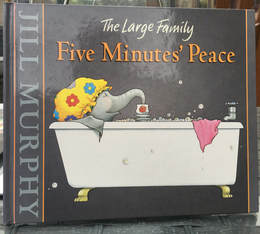 AND BREATHE... When the girls were little I used to love to read the the story ‘Five Minutes Peace’, by Jill Murphy, to them. In the story Mrs Large tries on countless occasions to sneak away just to get five minutes peace from her busy and chaotic life with her 3 children. No matter what she tried and how quietly she left the room, they would track her down and join her, practising their reading or recorder playing! She totalled 3 minutes and 45 seconds of peace at the end of the book, before they joined her once again. I used to think that if I read it to the girls often enough, they would somehow get the hint that sometimes I needed just five minutes peace, to myself - needless to say they didn’t get the hint! Now I realise that this was the first steps of me recognising the importance of self-care. However, I often felt guilty about leaving them to play, that I was neglecting my duties of being a mum, and would chastise myself for being a selfish or bad mum, so rarely allowed myself this time. On reflection, I now realise that without sometimes grabbing just 3 minutes and 45 seconds of peace to myself I would have been grumpy (grumpier), impatient and not much fun to be with! Reality In this busy life, especially as a parent; whether we go out to work or are a stay at home parent, it can all get too much. We need to factor in down time for ourselves, a time to chill, do something for ourselves, recharge our batteries which in turn enables us to continue being able to give to the little people (and adults) in our lives who need us. Establishing bedtime routines are so beneficial. Little people need sleep. Starting from the outset - even as a newborn - can help your little person feel safe and secure, they know no different and you have started to introduce boundaries and routines that will become part of the rhythms of your family life. Another benefit is that once your little person is in bed this gives you (and your partner) some grown-up time. This can be simply sharing what has happened in your day, watching TV - other than cartoons or CBBC! It allows time to be together without the children, nurturing your relationship, which can all too often be put on the back burner when we have young children. What can I do? Start doing something that you enjoy doing just for you. It isn’t selfish, it’s important. It gives you time for you, preventing burn-out, feelings of low self worth, and feelings of generally being overwhelmed. It also enables you to remember who you are - not just your child’s parent. You are you! Stuck for ideas? This could be soaking in a bath filled with bubbles, cooking for pleasure, meditating, going for a run or bike ride, listening to music, catching up with friends or simply immersing yourself in a good book. As a couple, why not go on a date night? Invest time in one another too. Children learn by example, perhaps self-care could become part of every day life (or just once a week), a time when everyone gets to have their own bit of chill out, time away from screens and outside distractions. Time to rediscover who they are and recharge their batteries for busy family life. Anything for just five Minutes Peace. 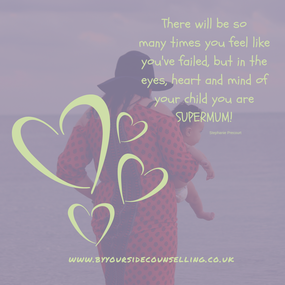 Firstly, congratulations!! Earlier this week, my niece and her partner welcomed into the world their very cute and precious son. It got me thinking how the circle of life continues. I always thought that I would have boys, for no other reason than the fact that I have 4 brothers. For me, I was lucky enough to have 2 beautiful daughters - maybe this is to make up for not having a sister, they are my world. I would've loved a sister, I remember crying when my dad told me I had another brother! Seeing photos of my niece so happy, I started to reflect upon my own amazing journey of having the girls and becoming their mummy. A role I am so lucky and privileged to have. Becoming a new parent is a rollercoaster full of emotions, expectations, excitement and fear. I remember thinking how everyone else seemed to have their shit together and was cruising this new mum stuff. I struggled. I gave myself a hard time - I’d been a midwife and could enable the families and in particular give mum’s permission to be kind to themselves, to take it easy, something I was unable to tell myself. I believed that I had to prove to the world that I could do this on my own, without help and support, to prove that I was a good midwife and a good mum. The reality of it was (although when I reflect back I realise I was good at it), I gave myself a very hard time. I felt I’d failed on so many levels. It took ages to get up showered and dressed in the morning, feeding every couple of hours taking it’s toll. I don’t think I managed to leave the house for the first week; sitting, weeing, walking and feeding were all so painful. But I did it! If I was able to give my new mum self some advise it would be - “Looking after a new baby is a full time job and boy is it tiring. The cleaning can wait, accept help whenever it’s offered. You don’t have to be ‘supermum’. Sometimes just looking after your new baby, meeting their needs of nappy changes, feeding, winding, rocking, cuddling, taking photos, beaming proudly at the bundle you have created, sleeping, and repeat, is enough. You ARE enough.” Take your time. If your little one falls asleep on you, enjoy the moment. Perhaps it’s Mother Nature’s way of telling you to slow down. To rest and recuperate, try not to compare yourself to other mum’s and perhaps the best advise is it’s ok to find things difficult, tiring and emotional and it’s DEFINITELY ok to ask for help. Just a thought - Perhaps if we as mums were more honest with each other about not coping or finding some days harder than others, we would make things a whole lot easier for ourselves and each other. Be kind to yourself and each other. You’re doing OK and that is enough. If you'd like to get in touch or share your experiences; either click on the button below or leave a comment. This website uses marketing and tracking technologies. Opting out of this will opt you out of all cookies, except for those needed to run the website. Note that some products may not work as well without tracking cookies. Opt Out of Cookies No one has ever said that being a parent is easy! Especially if that is being a single parent; having to juggle child care and work commitments, alongside social lives (both ours and probably even more so our children's) and human interaction with others. Some are fortunate to have family members or partners to help out and step in, whilst others rely on friends and other single parents in similar situations. It's ok to ask for help, this is not a sign of weakness, instead it shows strength, to be able to recognise that we can't always do it alone, and nor should we. Ultimately, we do the best we can for our children and ourselves on any given day. This should not be underestimated, and should instead be celebrated. None of us are Mary Poppins, and if we manage to get through the day, sometimes that is good enough. However, it can be all to easy when we're tired, stressed, busy, doing household chores, feeling low or just not able to be there for our children, to put them in front of a screen - whether this is TV, computer/games console or smart phone/tablet. I, like millions of other parents managed to survive by allowing this to happen from time to time. This does not make us bad parents, it makes us human! As long as we are able to recognise this and are mindful as to when this is happening and how often - not all day, every day - then that is a great first step. Recently we were on a train journey; opposite us there was a mum and her son - he was probably 5 or 6 years old. He had a colouring book and coloured pencils. There was not a screen in sight. They talked for the whole journey (and wow could he talk!), he was so excited to share what colours he was going to use, what they could see outside the window, what they were going to do once they arrived at their destination. They talked to one another about what they were looking forward to - it was beautiful, yet sadly it seems so rare to see out in public. From personal observations, and talking with friends, at times it feels like we have been thrown back into the Victorian era. To a time where children should be seen and not heard. Although today they are not sent to the nursery or into a corner, but given a screen to keep them quiet. Human beings, both children and adults are innately sociable creatures, we thrive on interaction from others in our tribe and further afield. Through discussions we learn invaluable skills including listening, conversation, discussion, negotiation; we learn through intonation, facial expressions and body language. We rarely, if ever, learn any of this via our apps, virtual reality and the world of social media. I am very aware, there is a time and place for these gadgets, but we also need to be aware that they should not replace our parenting or interactions with our children. Before we know it the time has flown and has disappeared all too quickly, the time when our little children want and need us to be their everything in their world. It is during this time that we need to teach them resilience, courage, the ability to question, to share, be kind and safely explore the world around them - we try to be the best parents we can be, but this means we have to be part of it and not a spectator. Play games with them, walk and talk outside in the fresh air, listen to their worries; actively be there for and with them. Our girls are now in their 20's, we still (when we're together), sit around a table to eat our meal and share what's happening in our lives, we play games and even watch TV or a film together, and chat about it afterwards. Ultimately, we all need to feel loved, valued, wanted and cared for; children are no different. If you are struggling and would like some support, why not get in touch with me below 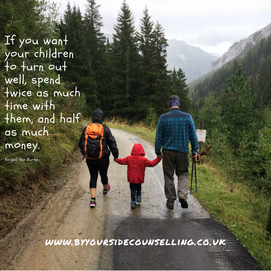 Summer holiday survival You’ve managed to sort out the childcare headache for the summer holidays, congratulations this in itself is no mean feat. Here’s to enjoying six weeks of carefree days, sun, sea and… screaming kids. I remember it well the anticipation of sharing precious time with my 2 girls and yet there were some days when I couldn’t wait for school to be back. Does this make me a bad mum? No, it makes me human! I was fortunate enough to raise the girls before social media took over our lives; before everyone posted what a fantastic time they were having together, pictures of what they were eating, where they were staying - what we need to remember that it is just a snapshot, one moment in a 24 hour period that might not actually be anything like the photo posted on instagram would have you believe. Often as parents, and as individuals, we feel that we are not good enough, that we are bad parents/people and that everyone else has got is sussed. Truth is, you’re not and they haven’t! There is no real rule book on how to be a good parent, we’re all just winging it. Some days are better than others, but we are all just trying to be the best parent we can be today. If you’re struggling how to entertain the kids for the remaining few weeks why not give some of these a go, they don’t have to cost a lot of money, so what’s not to like? 1. Turn off from social media Challenge the family (this includes the adults) to have a morning/afternoon/day free from social media/internet. We as parents need to set an example, all too often we miss what is going on around us and not live in the moment because we’re so wrapped up in seeing what everyone else is up to. We miss seeing, exploring and experiencing life as it happens. We don’t need to take 20 photos or videos and post them to prove we’re having a good time, we can just live it! 2. Board... games The sun has gone into hiding, now what? Why not search through all the board games, packs of cards, lego, puzzles, colouring books and pens. Each one of you choose a game and spend the day getting lost in the competition, closeness, rules of turn taking, laughing together as a family. I often used this opportunity to realise which games the girls had grown out of, or maybe giving them an opportunity to simply play again, as all to often they want to be racing ahead onto the next stage. (No console/phone in sight) 3. Making dens Using a bed sheet/duvet cover, blankets and pillows, not forgetting a bucket full of pegs, why not make a den together? We’d peg the sheets to a couple of chairs, or use the sofa cushions to hold the sheet in place and make a tent. This often ended up sparking their imaginations; we became pirates and used cushion on the floor as stepping stones to get from one side of the room to the other without being eaten by crocodiles! As a reward we’d have a picnic in our den - usually some fruit chopped up and a glass of squash. 4. Movie memories Movie/duvet days are also great fun. Snuggle up under the duvet together and watch a movie. The kids will love the fact that you’re there with them, these are the precious memories that will be remembered. The chores can wait, and it’s far cheaper than going to the cinema. 5. Fresh air Take the kids out, even if it’s raining! This doesn’t mean paying a fortune. Walk around the area where you live, go to the beach/woods/park. Kick a ball around together, jump in puddles. Get them to pick up twigs, leaves, feathers and then when you get home use these treasures to make a picture of your outing. You don’t need glitter and paint, nature has provided you with all you need, that and some encouragement and imagination. 6. Unleash the artist When the sun does come back out, there’s always chalk drawings on pavements (the rain will soon wash them away again) or using an old paintbrush and some water, ‘paint’ a picture onto the path before the sun dries it up. 7. And... bake! Bake with the kids. It doesn’t have to feature on the Great British Bake-off or Masterchef, but the skills, time and concentration needed to weigh, measure, mix, stir, laugh, get covered in flour - obviously optional - along with the fun, laughs and connection with each other will be remembered for a long time. It’s ok for your children to be bored, you’re not there to entertain them all day, every day. When children become bored, and with a little bit of direction they begin to use their imaginations, to create, explore and discover - all of which are precious life skills. I’m not Mary Poppins, nor do I profess to be the best mum around, or know all the answers. However, I do remember some of the cheap, easy and fun things we did together. It’s about quality time together and reminding yourself you’re doing an ok job and that you are good enough. If you have any other tips, why not share them below in the comments. Recently I wrote this article for The Counsellor's Café. Click on the link below to have a read.
www.thecounsellorscafe.co.uk/single-post/2018/06/26/Friendships-is-it-time-to-move-on  Well that year zoomed by! After the anticipation and chaos of the festive season, the excitement of having our two beautiful daughters home with us for Christmas and welcoming in the new year, I'm now sat with a cup of coffee reflecting on the events of the past year. Christmas for me, always heightens the awareness of those we have loved and lost, whether this is through bereavement or lost relationships. As Christmas cards dropped onto the mat, taking into consideration the cost of buying and sending cards, I realise that friendships that once dominated my life and felt so important have ebbed away as life changes and choices are made. It has taken me a number of years to realise that some people are only meant to be in our lives for a short period of time, they can enhance it or help us to learn from the relationship, whether positively or otherwise. I used to believe that having lots of friends was what I needed, that it somehow validated me and I was liked. I now realise that it is not the number of friends that is important, it is knowing which ones are there for you during the difficult times as well as the good, no judgement, just genuine friendship . Quality over quantity. As many people start the new year vowing to make and keep New Years resolutions, I have decided that this year I am not going to do this as such. Having discussed it with my youngest daughter; instead of me committing to losing weight, drinking less, going to the gym weekly etc, I will make a promise to myself - we talked about learning to say yes and no. Learning to accept and love who we are, the good and the not so good bits. Being empowered to say yes to the things we want to do without fear of upsetting other people, yes to new adventures and yes to putting ourselves first. With that comes the ability to say no for the exact same reasons; to learn and value ourselves, we are the only person who can really make the right decisions for ourselves. We cannot decide how other people perceive, accept or don't accept our decisions, that is down to them and something that they need to work through for themselves. We all have a choice and with those choices come consequences. We need to learn to have strength and belief in our abilities. Those who truly want the best for us will (hopefully and eventually) realise that we do have the ability to make the right choices for ourselves (it's ok that these may differ from what they think or believe), and even if these choices don't work out as we hoped, planned or anticipated the journey of gaining knowledge, courage, strength and belief in ourselves is invaluable. You'll always end up where you need to be. Happy New Year to you; and a message to our two daughters ‘Remember you are braver than you believe, Stronger than you seem, Smarter than you think and Loved more than you’ll ever know.’ I recognise and acknowledge that empty nest is not just a phenomenon experienced by parents whose child is leaving and moving to university.
After the warmth of the summer holidays, receiving exam results and finalising choices for the future, September brings with it new beginnings and transitions. Over the next few weeks there will be countless streams of cars crammed full of bedding, crockery, pots and pans and other items from home, taking to the roads and transporting their children and possessions either back to, or to university for the first time. If you're really lucky and have left behind the extra items that might come in handy, there's just enough room for your child and yourselves to be shoehorned in too! Excitement, trepidation, anxiety are crammed in the car too, both for the young adult embarking on their new journey, and parents alike, a vehicle full of mixed emotions. Having safely left your child in their accommodation, and usually wiping away a few (or a lot of) tears the journey back home begins. What now? Who am I? What should I do? I'll miss them... These and so many more questions and emotions fill the spaces where the bedding, pots and pans sat. After we'd dropped off both our daughters at uni all these questions bombarded us, I realised that this was what they meant by empty nest. The girls are now in years 2 and 3 of uni, but this hits me each year, who am I now that both the girls have moved on to their next adventure in life? Up until now I knew I was mum; dependable, always there, teaching/nagging, supporting and loving both the girls unconditionally. This has not changed, however as time has moved on I realise that our relationships with one another has. They are now independent (most of the time - we still get the odd text asking how to defrost or cook an item, or is it ok to wash/tumble dry a specific item of clothing) they make their own choices and decisions - as it should be. Both have partners who are their go-to person and that is fantastic, however as a mum it has taken me a while (and I still am) adjusting to the change in our relationship, especially if they are going through a difficult time and all you can do is be there for them, no longer being able to just make it all better. It'll never be how it was, it is different, still positive, beautiful, the best job in the world, just different. I tried to find and read numerous articles so I felt less alone in this new role and how I was feeling. Some were helpful, some not so, some even seemed to ridicule how I was feeling - there were undertones of 'pull yourself together' - or perhaps that was just my sensitivities. Now that I am getting used to how things are I found that working through some of these 'tips' can be helpful, they might help you too: Keep in touch - Even though your child has moved away you can still keep in contact via phone calls, emails, texts or video chats. However, they are trying to build new friendships and support networks so they need time and space too! Arrange to visit - and be prepared that this usually entails filling the fridge and taking them out for something decent to eat, but nevertheless it's still quality time! Talk to someone - If you're finding it difficult adjusting to having an empty nest talk to loved ones, your partner will possibly be experiencing something similar (whether their emotions and feelings are the same or different - just as we are all individuals we all experience things differently, neither is right or wrong) or friends in a similar situation - they'll understand. Share how you are feeling, it's normal to feel sad, lonely and lost (or excited and happy), whatever you're feeling is ok. If you start to experience a low mood or feel depressed, consult your GP or seek counselling. It's ok to feel positive - You now no longer have a young adult asking for your undivided attention at all hours of the day and night. Using the extra time and energy you now might have, you could invest it in some personal interests or hobbies you have had on the back burner, or focus on getting to know who you are now. Some individuals nurture their relationship with their partner, that might have been put on hold, and explore the delights of being together and 'child-free'. Whatever you choose to do might help you adapt to this major life change. Give yourself time - Most importantly, give yourself time to adjust and accept this new phase in your own and your child's lives; acceptance to be with the ‘not knowing’, accepting and trusting this new process and truly learning to let go. There will be a mix of emotions. Focus on what you can do to help your child succeed they do leave home. Feel proud that you have enabled this young adult to grow and mature into an independent person. 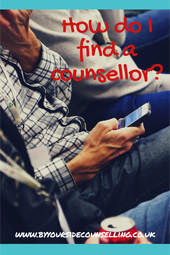 "How do I find a counsellor?" This is a question I am often asked. How do we as counsellors enable our clients to find out about us and what we offer? There have been numerous occasions when I have been asked how to find a counsellor. I guess as it's my field of expertise it's only natural that people feel able to ask. However, I and others in a similar position assume that everyone knows how to find someone. I'm wrong. Just because we in the profession have heard of the BACP, NCS, 'Counselling Directory', 'It's good to talk' website and countless other sites that we easily call to mind, doesn't mean that everyone else has, especially individuals who may be at crisis point; however these sites can often be a good place for them to start. Deciding that you think you might need to see a counsellor, telling someone you need help or admitting that you are currently struggling is a huge step for many people. There is still, despite the improved image, increased publicity and Royal support, a stigma associated with mental health. There is confusion between the terms counsellor, therapist, psychotherapist, psychiatrist and other titles that even those of us within the profession can struggle to separate or understand the different roles, training criteria and specifics offered. Throw into the mix the different modalities and wow, it can feel like we're wading through treacle, so imagine how prospective clients must feel?! How do we enable vulnerable individuals to find a counsellor and help them make that choice? There is no easy, clear answer. Whilst some of the issues stated above need addressing by the umbrella of mental health and possibly our professional bodies, we as individual counsellors can ensure our adverts (these can include leaflets, which can often be overlooked due to the easy use of the internet) and websites are understandable, user friendly and as far as possible jargon free. Before I undertook my counselling training I had no idea about Person Centred Theory, Gestalt, Jungian Theory, CBT, core conditions etc, etc. Clients who feel vulnerable need to know you are there for them. Not to offer a quick fix, but someone who will support them during difficulties in their lives, understand and empower them. We need to be transparent and provide links to further information and other agencies who could be better placed to support the individual at that time. As someone who works in private practice my initial thoughts were, “I can work with anyone.” There was also an element of ,"I need to work with anyone and everyone!" Whilst I acknowledge that, “yes I can” I have come to the realisation that although I can work with most individuals and their issues, I might not be the best person for the individual. I cannot be all things for all clients. I have my areas of expertise (although I am not the expert; I believe the client is the best expert of themselves) and realise that by acknowledging this, and as a consequence promoting myself in my own niche, will help the client in crisis identify which counsellor can support them best at this time. My SEO (search engine optimiser) reflects these key phrases, I provide links from my website to the BACP and other directories where I promote my services, this enables the client to make an informed decision as to whether I am the right counsellor for them at this time. I also provide external links within my blogs for further reading or alternative agencies that could provide the support being sought. Ultimately it is the clients choice. Going back to my initial title, if I am ever asked “How do I find a counsellor?” I signpost individuals to the counselling directory or specific counselling organisations that specialise in the issue that requires support. I also suggest asking friends and family for recommendations, word of mouth promotion is possibly one of the most powerful forms of recognition for any individual counsellor. Networking with other counsellors, letting them know your speciality enables them to promote you and what you're good at, if we all did just a little bit of this perhaps accessing counselling for our clients wouldn't be such a mine field as it can currently appear to be.  Miscarriage, unfortunately still remains something of a taboo subject. Women who have suffered a loss of pregnancy can feel embarrassed and isolated. The aim of this blog is to help get information out relating to the feelings associated with losing a baby, and provide a go to place for individuals, and their families and friends who want to sensitively support them at this time. Losing a baby due to early miscarriage is devastating. It is not just the physical loss, but the loss of hopes and dreams for the future. Everyone’s experience of pregnancy loss is unique. It is normal to feel a vast range of emotions, and there is no right or wrong way to express your grief and loss, these will vary and be dependent on your own circumstances. Your way may also be different from how your partner expresses their loss. They may be trying to protect your feelings and emotions by not sharing their own feelings, neither is right or wrong. Some people find it very difficult to know what to say, especially if your miscarriage is early in pregnancy. This can add to your feelings of loneliness or isolation. Others may end up saying the wrong things, even though they were well meaning. Some may be fearful that they might upset you so choose to say nothing. Whichever way people speak with you, these responses can be hurtful; some people just don't understand what your loss means to you and your partner. The Miscarriage Association have launched a campaign ‘Simply Say’ highlighting what might be helpful to #say/#dontsay. Their message is; ultimately each individual is different, listen to them and be guided by what they are needing. Often individuals find talking about their loss can help. They may find that people can be supportive and understanding. Some may share their own experiences helping reduce the feelings of being alone. There are support groups available, however this is not for everyone, and some women and/or their partners find talking with a counsellor as a couple or on a one-to-one basis can be helpful. I can be that person for you to talk to, why not click on the link below and get in touch. The Miscarriage Association offers a range of online support. www.miscarriageassociation.org.uk.  Choosing a counsellor can often feel like a daunting task. Once the decision has been made that the time has come to talk with someone it can often feel overwhelming choosing, where to begin? In simplistic terms it could be compared to reading a book. I personally have to be in the right place (frame of mind) to read a book. I am sometimes envious of individuals who are able to constantly read something, and even have one or two books on the go simultaneously- now that just blows my mind! Choosing what to read is making an informed decision and choice, as is choosing a counsellor. Some individuals go by recommendations from their friends or family, whilst others pro-actively search. Google can be a good place to start, as can counselling directories and websites that have all the counsellors within a search distance pop up... This can be overwhelming, which one to choose? As with choosing a book, we can be drawn in by the front cover or font, whilst the old adage is don't judge a book by it's cover, there is a lot that can be said for going on gut instinct, we are often drawn to something we see for a reason - we just need to be mindful of what or why this has awakened our senses. Next, we tend to read the blurb on the back of the book, if it grabs us and we understand what is written, we take the next step... Once again, the same can be said about choosing the right counsellor for you. What draws you to their picture? Do you connect with the text they have written? Do you understand it (there is no shame in not understanding it, as there are some who blind us with the big words, phrases and terminology; and miss the point that many individuals seeking a counsellor just want someone to listen and support them.) Finally, we might dip into the book and read a couple of pages. The majority of counsellors offer an introductory session (some are free, some are at a reduced cost, whilst others charge for a full session), the choice is yours. The introductory session allows both of you the opportunity to see if counselling is right for you, but more importantly can you connect with this specific counsellor. We don't always continue to read the book we've chosen, the same is true of counselling, it has to be right for you at this moment in time, and this is ok. Whilst this insight might seem simplistic to some, for others it can help to realise that choosing the right counsellor for you may take time and a couple of goes, but once you find the right one you are one step closer to finding the best you too. Good luck with your counselling journey, if you wish to contact me, please do using the link below. It might be the best choice you've made. Exam time is speeding its way towards many of our young adults, whether it's in the form of GCSE's, AS or A levels.
Anxiety The rise in anxiety levels and stress is marked, not only for those studying, but for parents and other family members too. With mental health being widely spoken about, we are slowly becoming aware of how it can impact on our youngsters. Many of the young adults I see feel anxious, pressurised, invisible and scared about this time. As parents we want the best for our children; however at times we need to recognise that sometimes we don't know what is best for them. Yet they do. For example, they may have said they want to be a Dr and have said this for many years, but there are some individuals who know this is what their parents either want them or expect them to be, (they may have picked up on the wishes and desires of the family), when actually they have ambitions and dreams to be something completely different. Fear They fear telling the parents, they fear rejection, that they have let them down by not wanting to become the Dr, they also feel that they will no longer be loveable or hold any value within the family, that they have failed. Trust Young people today know how much work they need to do, they know the impact of this - whether they do it or not, and the majority also know how to manage their work loads. Some just choose not too. Many feel suffocated by the constant checking up, lack of free time and pressure to always be studying. They are aware of the consequences (they receive these messages from school), and there comes a times when, as young adults they need to have the freedom to make these choices and live by the results. To feel trusted to make their own decisions and choices. Support We cannot live their lives for them, and they need to be supported to make these, whether we approve of them or not. One of the roles of a parent is to prepare our children to become independent, functioning adults who are able to make choices and live by the consequences. Some of the young people I work with tell me they feel they will let their parents down if they don't get the results their parents and schools are expecting them to achieve, that everything hinges on the envelope they open in August. Wow, so much pressure, whether this is actual or perceived, it is real for the individual. What now? So what can we do to help? Your young person wants and needs your love, support and encouragement, they need to know that you trust them to make the right choices, and believe that they are achieving to the best of their ability. There are, of course, some young people who do need to be reminded and given 'extra' encouragement to keep on task, remember the saying you can lead a horse to water, but you can't make it drink - how frustrating and time consuming! Every child is unique Not every child is able to achieve an A*, there are many who need to feel valued achieving their best grade, that as long as they are able to put their hand on their heart and say they did the best they could, what more can anyone ask of them (or any of us - the majority of us try to achieve the best we can at the time, in the circumstances we find ourselves in, so why should it be any different for our children?) The future If in August the results are not what were wanted, needed or expected, then the young person has still learned a valuable lesson, they have ownership of their results and future; (there should be no place for blame, recriminations or "I told you so.") Life doesn't end here, there are always different options available. http://www.bbc.co.uk/programmes/articles/1PJHnFnXJ5grjgJhmB8bKSm/category-studying-work |
AuthorI am a counsellor who wants to empower individuals to be the best version of themselves. Archives
October 2020
Categories
All
|

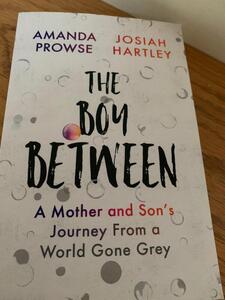
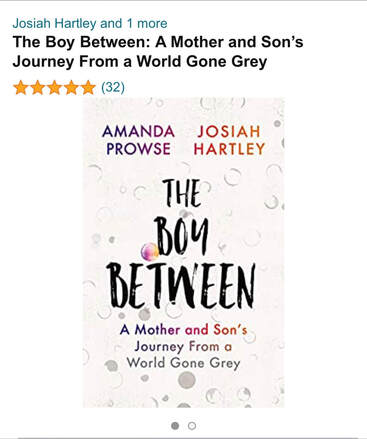

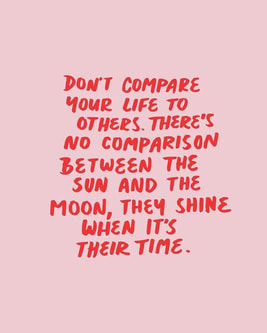
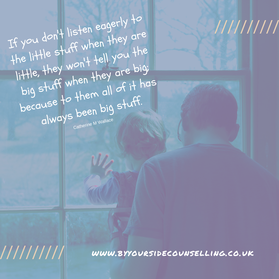
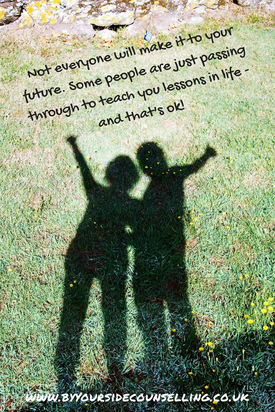
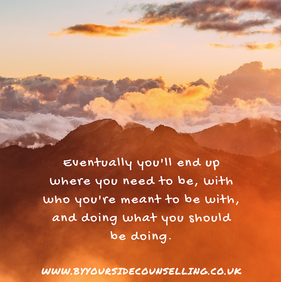
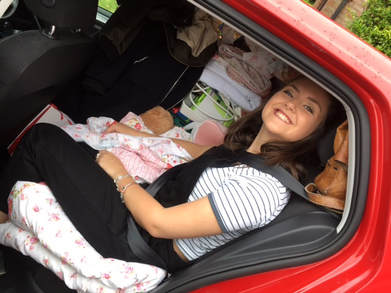
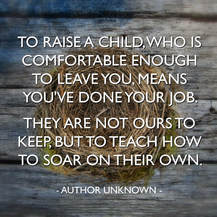

 RSS Feed
RSS Feed